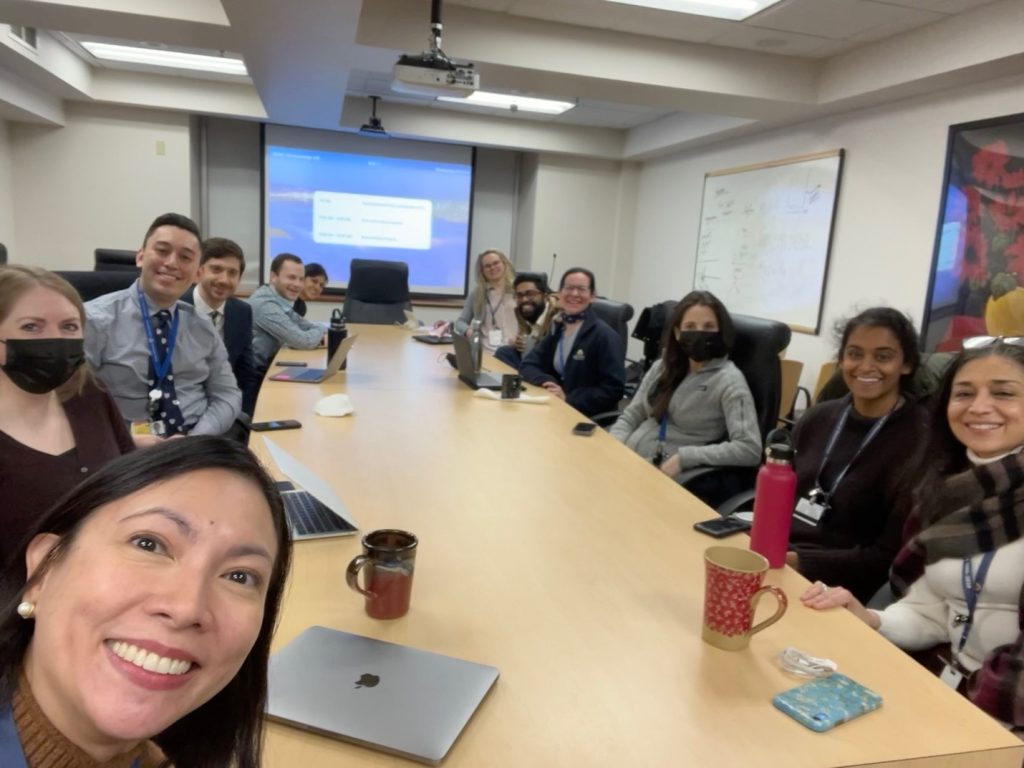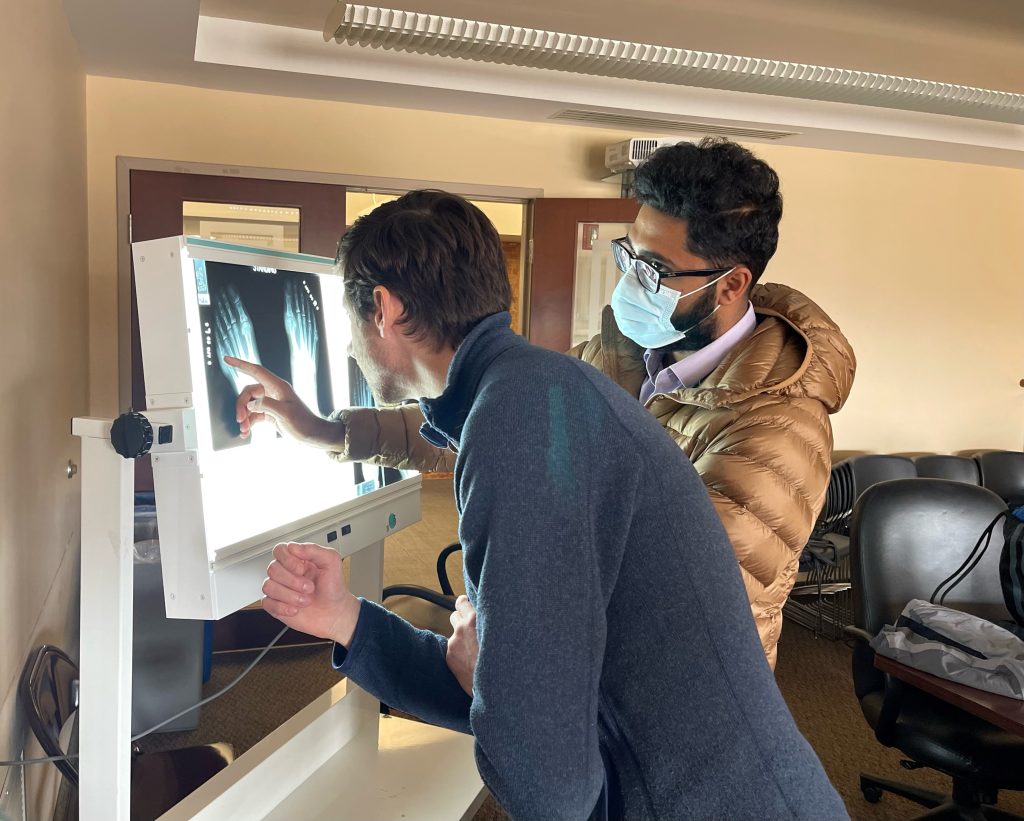CRASH COURSE: During the first week of fellowship training, first-year fellows have no clinical assignments. Instead, they attend a “crash course”, taught by faculty and senior fellows, which introduces them to the institution and key concepts in clinical and investigative rheumatology. We have recently supplemented this with workshops on the musculoskeletal examination, taught by senior fellows who are paired with clinical faculty with expertise in musculoskeletal medicine.
CORE CURRICULUM CONFERENCE: Throughout the year, all fellows attend a weekly conference during which individual faculty meet with the fellows in a small group setting to discuss topics in rheumatology in greater depth. This not only spans the breadth of rheumatology but also incorporates other specialties, such as pulmonary, neurology and endocrinology, which are closely linked to the rheumatic diseases.
RADIOLOGY ROUNDS: The clinical lecture series is supplemented by another weekly Radiology conference, which reviews radiograph interpretation and other related imaging modalities. One of these sessions each month is dedicated to musculoskeletal ultrasound and goes over principles of ultrasound, the anatomy/sonoanatomy of each joint, hands-on scanning, and ultrasound image interpretation with clinical correlations.
RHEUMATOLOGY ROUNDS: Each Friday, our Division as a whole convenes for Rheumatology Rounds. Presentations include visiting lecturers in clinical and laboratory research related to the rheumatic diseases, research presentations from our faculty, as well as presentations from trainees. Each fellow is required to present at rheumatology rounds at least annually. For first-year fellows, these presentations are often centered around a patient; senior trainees will often present their current research.
PRINCIPLES OF IMMUNOLOGY: This seminar in immunology is taught by faculty within the Division of Rheumatology. This allows each trainee to renew his or her understanding of the fundamentals of immunology in a manner that emphasizes their relevance to rheumatology. Trainees are similarly educated about standard experimental assays used routinely in the diagnostic evaluation of patients with rheumatic disorders.
JOURNAL CLUB: A monthly combined clinical and laboratory Journal Club reviews articles that highlight various methods and study designs used for a range of rheumatic diseases. These journal club sessions teach trainees skills in review of scientific articles, critical thinking, and effective communication with peers.




